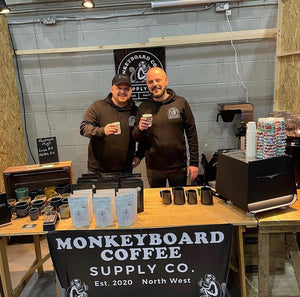
Get in touch!
Monkeyboard Coffee Ltd
Unit 96 Compass Industrial Park
Liverpool
L24 1YA
Contact no: 01513060131
info@monkeyboardcoffee.co.uk

Monkeyboard Coffee Ltd
Unit 96 Compass Industrial Park
Liverpool
L24 1YA
Contact no: 01513060131
info@monkeyboardcoffee.co.uk